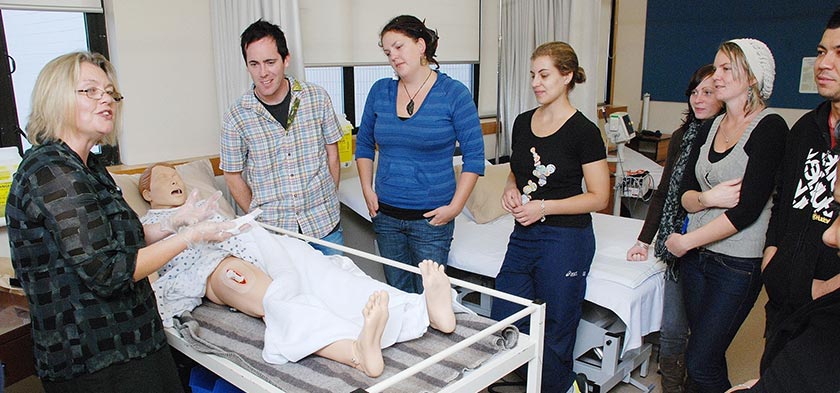A three-day medico-legal congress in Auckland last year had a central theme of “Assessment of capacity and mental illness”. Capacity refers to a person’s ability to make decisions.
As health professionals, we need to support people, wherever possible, to make their own decisions. It is essential to determine whether a person’s decisions or actions are valid in law. If not, key issues are who then decides for the person, and how those decisions are made. The standard for decision-making is that the person’s/patient’s best interests are being served.1
A congress workshop on the theme had six participants and two facilitators, Dunedin barrister Alison Douglass and psychiatrist Mark Fisher. The six participants were four specialist doctors, one non-clinical district health board manager and me. Had I not been there to represent the nursing perspective, I doubt nurses would have even been referred to in the discussion on assessing capacity and mental illness. It was clear nurses were not considered integral players in assessing a person’s mental capacity.
Nurses’ role unrecognised
Yet, on a 24/7 basis, it is nurses who provide the bulk of care to “general” and mental health patients and rest-home/hospital patients. We know nurses contribute to the discussion and decision-making on a person’s mental capacity, but somehow their role in multi-disciplinary teams goes unrecognised. Why is nurses’ role here – and in other practice areas – potentially disregarded by other health professionals? Perhaps it is perceived by those outside nursing and education not to be important enough?
Nursing educators influence what is (and isn’t) emphasised within the curriculums of the 18 schools of nursing (institutes of technology/polytechnics (ITPs), universities and one wānanga) that offer 29 programmes leading to registration as a registered nurse. The nursing curriculums are designed and delivered in line with the Nursing Council’s education programme standards, which are currently being revised. The availability of clinical placements, too, is a very significant factor influencing the integration of students’ learning experiences.
In terms of Government-directed change, opportunities for nursing input are limited and chaotic. The Vocational Education Reform Bill was introduced to Parliament in August 2019 and enacted in August 2020, resulting in changes, including the introduction of the overarching Te Pūkenga, New Zealand Institute of Skills and Technology (NZIST). This umbrella body was “stood up” in April 2020.
The creation of Te Pūkenga has meant that all the ITPs are now “subsidiaries” of Te Pūkenga and no longer function autonomously. The Government’s Reform of Vocational Education (RoVE) encompasses nursing education delivered in ITPs but not in universities. Under RoVE, six industry-led workforce development councils (WDCs) are proposed. Nursing will be a part of the health, community and social services WDC, with its wide coverage of vocations.
Independent of these RoVE changes, the Nursing Council is consulting on nursing education standards for programmes leading to registration. Submissions closed in December last year. Meantime, the National Nurse Leaders Group is waiting for the appointed steering group to decide the terms of reference and details to be explored in the proposed nursing education consensus workshop to be held this year.
Given the fundamental changes being considered (including one RN curriculum for ITPs), it is vital nursing education promotes effective communication across the health system. This would help steer the health sector – in the words of the Health & Disability System Review – “on the path to equity, responsiveness and sustainability”.2
It is unacceptable for nursing to remain unseen and unheard when major changes in health care, structures and administration are being formulated. Nurses’ input has too often been ignored; nurses’ role in assessing mental capacity is just one example.
This issue of nursing input needs to be addressed and nurses must be able to competently and confidently contribute to improving health care in its widest sense. Let’s work together to find the most effective solutions for nursing education, which will lead to recognised and valued nursing practice.
References
- Douglass, A., & Fisher, M. (2020). Capacity workshop: Assessment of capacity and mental illness workshop. Medico-legal congress. Auckland.
- Health and Disability System Review. (2020). Health and Disability System Review – Final Report – Pūrongo Whakamutunga.







